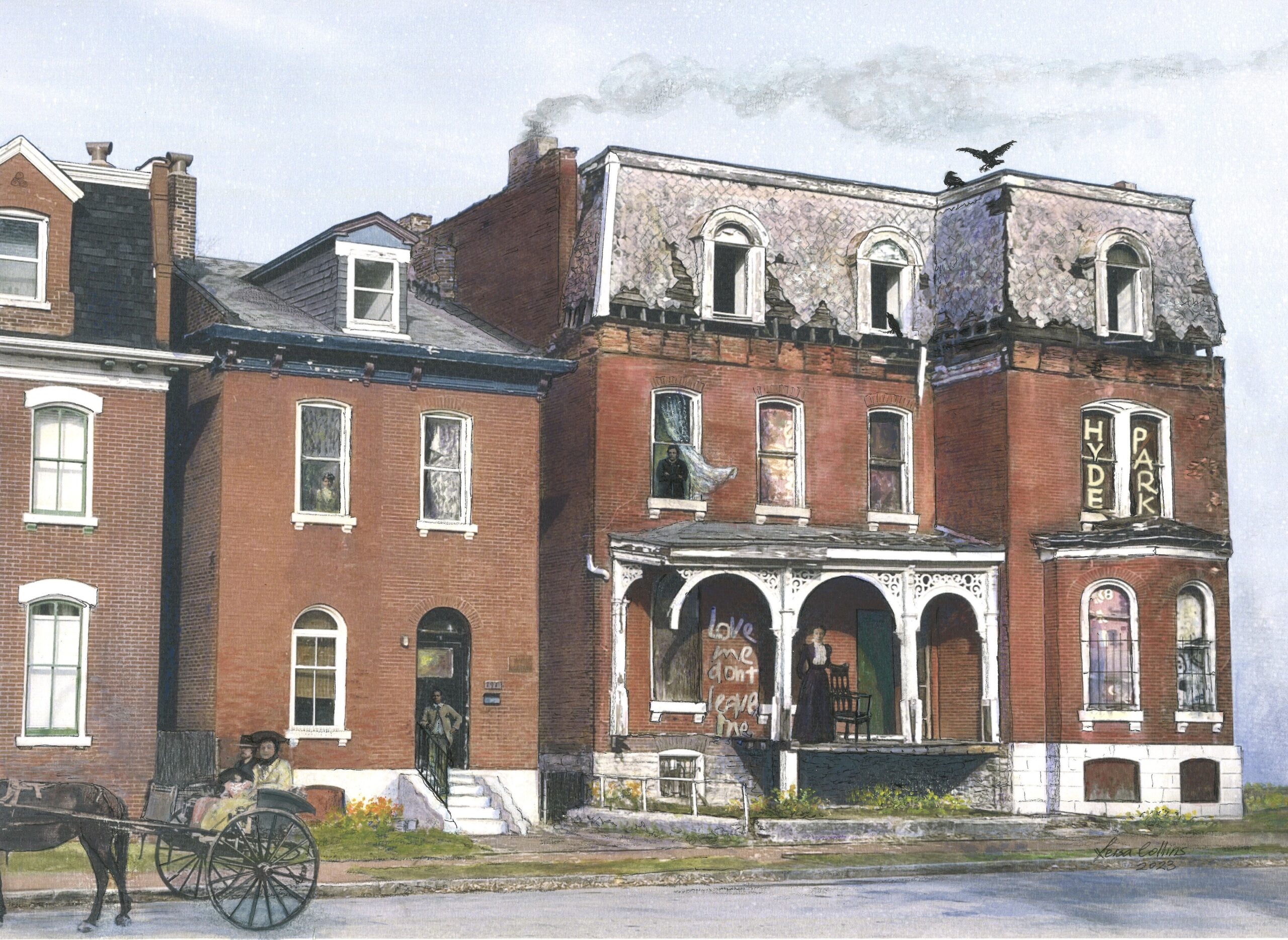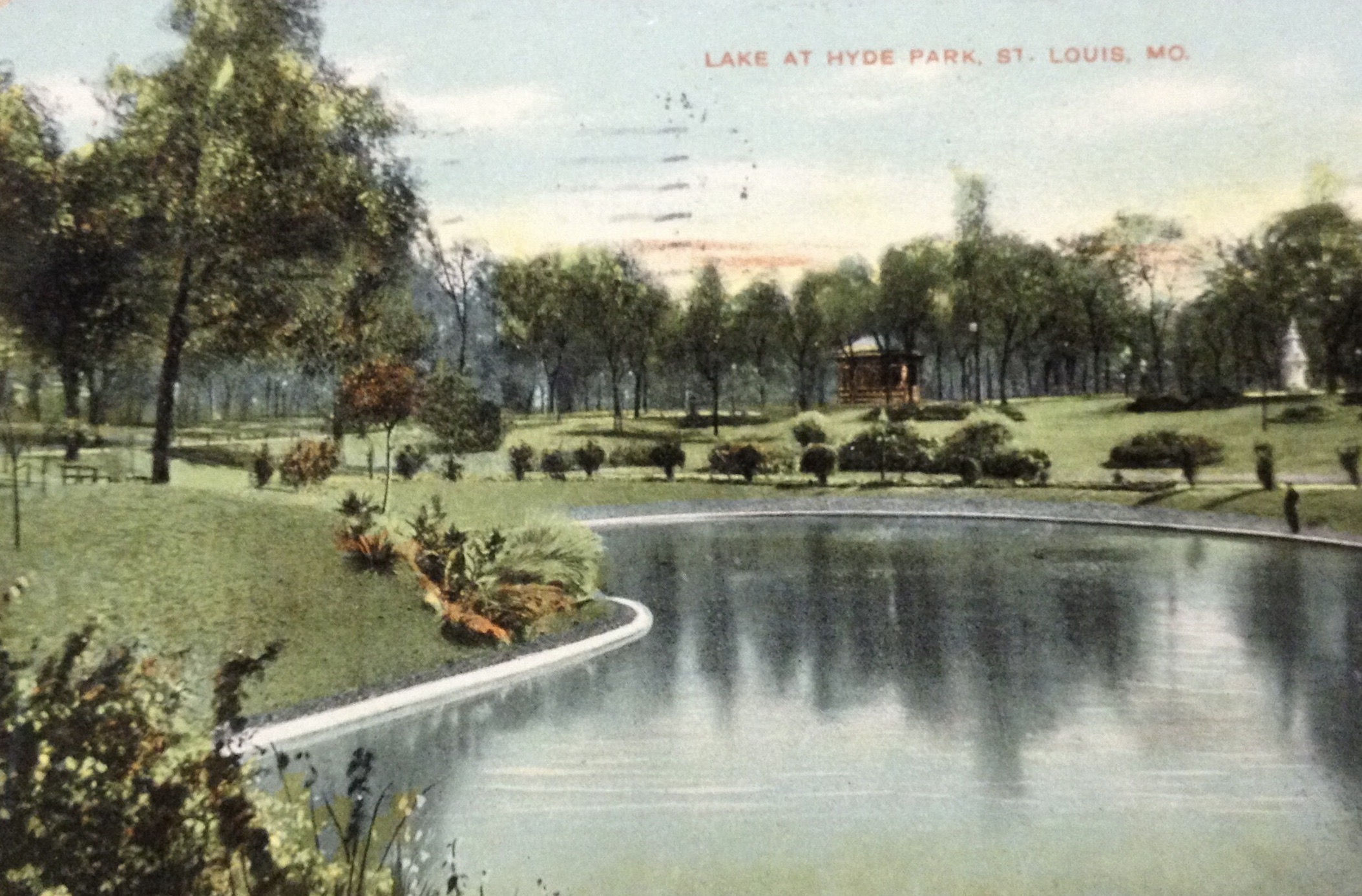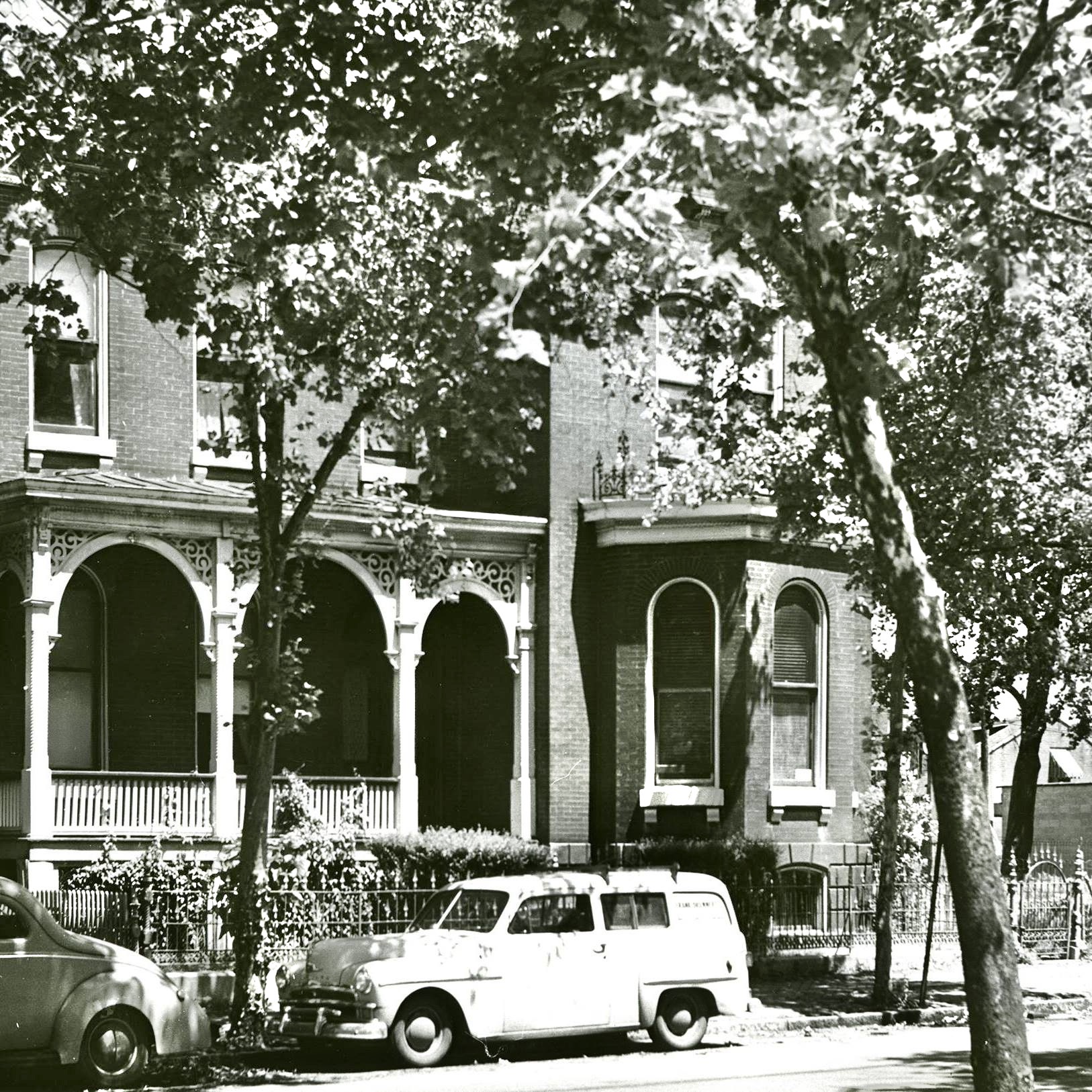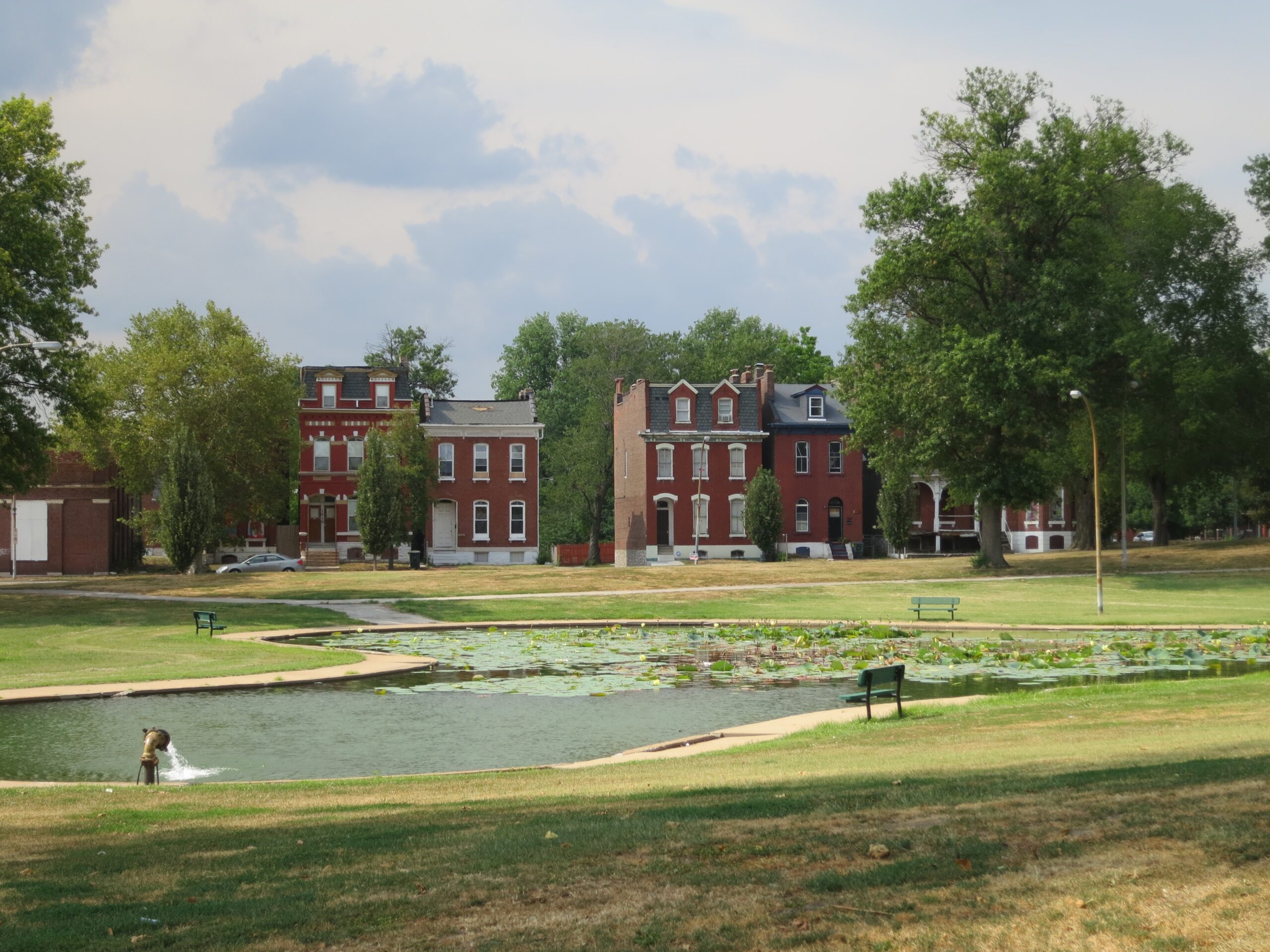Introducing the 4th in my Love Me Don’t Leave Me Series entitled “Hyde Park Elegance”
Tucked away on Breman Avenue in the Hyde Park neighborhood of St. Louis, this elegant Victorian looks forelorny across a sea of lush greens. Today the park is still beautiful but once it was the talk of the town with its gazebo, fountain, stocked lake, service building and playgrounds. The wealthy and elite owned these fine houses right on the park, and this home, with its welcoming porch, was one of the earliest and without doubt one of the finest.

So many stories and images flash before me as I look at her old tired bones, imagining those who lived and loved in this home, the children who ran up and down the stairs, the visitors who were entertained on the porch, drinking from fine china. And so I have tried to capture but a few of these images in honor of those fine people.
My purpose in creating this series is to shine the spotlight on abandoned homes and buildings, not just in St. Louis but all over the country. So much of our stunning architectural history is sadly being lost as a result.
A little history

As with any home over a hundred years old, their history is always fascinating. Hyde Park neibhorhood was once called the town of Bremen and Breman Ave is one of the four streets surrounding the park. Among the many Germans who migrated to the St. Louis area in the 1840’s, a large number settled in this area and named it after their home town of Breman.

The neighborhood lost its prosperity to industrial disinvestment following WWII and Hyde Park was among the areas destined for “slum clearance”. With the the departure of General Motors, the North Side fell on its way to becoming a “ghost town.”
Hyde Park neighborhood is located at the foot of the McKinley Bridge. Hyde Park itself has sat in the middle of the neighborhood since the 19th century. The park saw history unfold during the Civil War. On July 4, 1863, four Union soldiers and two fairgoers died during a riot that exploded out of the wartime tensions in the city.
Hyde Park is listed on the National Register of Historic Places and there is evidence in the homes in Hyde Park of “underground railroads” that housed slaves.
Like much of the North Side, the neighborhood possesses a wealth of landmarks.

Until next time,
Leisa

